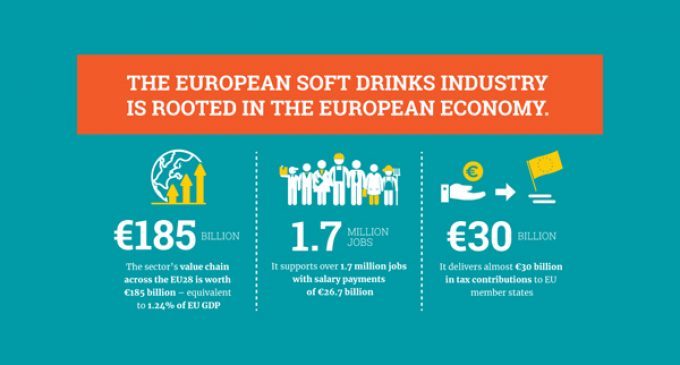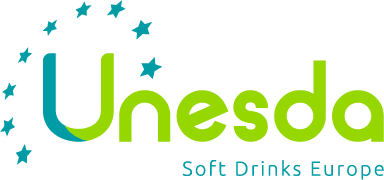European Soft Drinks Industry Sets Ambitions to Make its Plastic Packaging More Sustainable

UNESDA Soft Drinks Europe has announced a set of EU-wide ambitions to make the sector’s plastic packaging more sustainable. The ambitions aim to contribute towards building a circular model for plastic packaging by improving its recyclability, recycled content, collection, and reuse. The ambitions cover the EU28 plus Switzerland and Norway and are made by UNESDA’s network of 23 national federations and 9 corporate members. Individual members may choose to go beyond these ambitions.
Beverage packaging is the most collected packaging in the EU and large soft drinks companies have been instrumental in driving up recycling rates by establishing and running many of the packaging recovery organisations across the EU.
 The sector has already taken significant steps to make soft drinks packaging more sustainable and reduce its carbon footprint – including light-weighting programmes to reduce the amount of raw materials used; increasing the use of recycled materials and removing technical barriers to recyclability.
The sector has already taken significant steps to make soft drinks packaging more sustainable and reduce its carbon footprint – including light-weighting programmes to reduce the amount of raw materials used; increasing the use of recycled materials and removing technical barriers to recyclability.
“Achieving circularity through optimal collection, recycling and use of recycled PET is a top priority for our industry,” explains UNESDA Director General, Sigrid Ligné. “UNESDA members want all their packaging, including plastics, to be collected and recycled and not discarded on our streets, oceans and waterways. To achieve this, packaging collection systems must be well designed, set-up and managed by industry. Improved collection and recycling, alongside greater consumer awareness, are key to increasing the rPET content of beverage bottles.”
The ambitions are that:
* By 2025 100% of soft drinks primary plastic packaging will be recyclable;
* By 2025 soft drinks PET bottles will contain a minimum 25% recycled material on average;
* Collection rates of soft drinks primary plastic packaging for recycling will be further increased and optimised in all EU markets in collaboration with other packaging recovery actors;
* Soft drinks primary plastic packaging will be reused – including refillable bottles – where it makes environmental and economic sense.
The UNESDA ambitions also contribute to the EU’s bold objectives including the European Strategy for Plastics in a Circular Economy – which calls for ‘industry associations’ to ‘come forward with voluntary pledges to boost the uptake of recycled plastics’; and the proposal for a Directive on the reduction of the impact of certain plastic products on the environment – which seeks a ‘positive impact on collection rates, the quality of the collected material and subsequent recycling’ in particular for ‘beverage bottles’.
The soft drinks sector supports growth of a secondary raw material market that makes food grade quality rPET sufficiently available, accessible and affordable. With these conditions met it is ready to go way beyond its current target of a minimum 25% recycled material on average.
The newly launched ambitions underline the European soft drinks industry’s commitment to increasing rates of collection for recycling across the EU. The sector will play its part in tackling the societal challenge of packaging waste by continuing its collaboration with other actors and driving ongoing packaging innovation and improvement in the future.
UNESDA was established in 1958 and is a Brussels-based association representing the European soft drinks industry. Its membership includes both companies and national associations from across Europe.

































